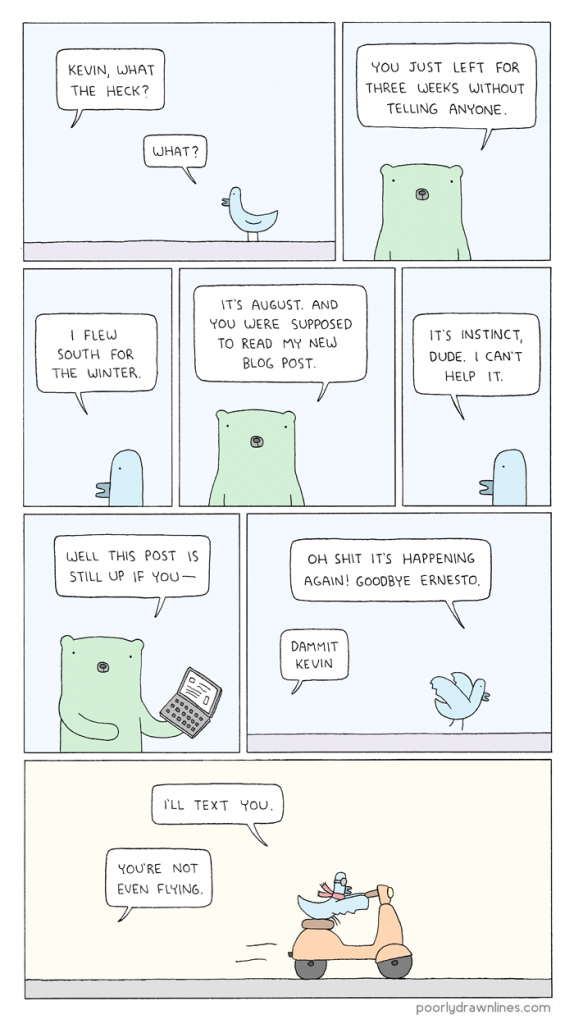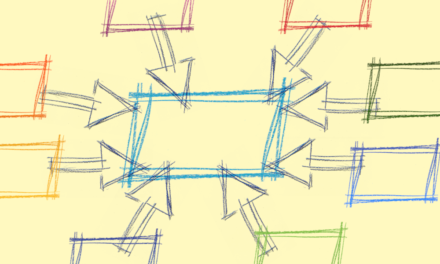In the more than two years since I started taking my writing seriously, there has been a story at the forefront of my mind, a cautionary tale about hubris and expectations. It’s not a fanciful or playful story either, this story is true, and I hope to always keep its lessons in view so that I don’t mislead myself when it comes to the creation or production of art.
There is a webforum of which I have been a member for more than a decade. With conversations grouped by general topic—current events, video games, finance, general knowledge, music, et cetera—a particularly active section of the board is for those interested in creating and sharing their work, be it visual, audio, or written. One poster was fairly diligent in posting new material, new content, and these pieces were well-received. On this site it’s common for dozens or even hundreds of people to view a topic without posting a reply, so he felt heartened by the fact that most all of his entries received regular praise and compliment.
Over time he amassed something of a regular following, those posters who specifically looked forward to the next piece or artistic endeavor, and would comment on it with their thoughts and—usually—their congratulations. At some point the suggestion was made that he compile his short stories into a book and self-publish it online. After all, there were upwards of a hundred people who had voiced respect for his work over the year, and that should be a solid foundation for any aspiring author getting their first book out.
He began posting about his pre-publication process and he received more praise, more encouragement. Finally, after a great deal of work, he released his collection to the world in electronic form, confident that the many positive and uplifting comments he received on the webforum would translate to a number of sales—after all, his fans would want to support him, he thought.
He may have misjudged their enthusiasm, and struggled to get more than ten sales in the first three months.
Lashing out at the community which had supported him, he managed to alienate himself from those who appreciated his work. He called them backstabbers, liars, and cheats. He felt fleeced by them, that their adulation rang hollow, and that he had “wasted” so much time putting together a book that nobody actually wanted to buy.
Ultimately, he was run off the website for being such a hostile person, the drama he brought to any new topic quickly outweighing the good contributions he previously made. In a huff he quit the site, telling everyone involved to go to hell.
When it comes to enjoying and supporting art, there is a great divide between how people feel and how the creator thinks they feel, and I get the impression it takes a lot of experience to internalize and accept that fact. When I started this blog in 2017 I was obsessed with the statistics, the metrics, which posts gained the most traction and what I could do to spread my words farther and wider.
I realized some time later, and then eventually internalized it as well, that the sheer volume of clicks and eyes that read my words don’t ultimately matter. I disabled the statistics and analytics plugins for this website and went about adding content as the inspiration struck. With no social media presence, all I really had to go on was word of mouth and the occasional prodding of my friends about one entry or another.
Never have I been comfortable with self-promotion. My go to joke on the matter is that of the two, I’m instead much better at self-deprecation. For some reason I’ve always had it in my head, even from a young age, that quality is its own salesman. This thought or belief (maybe fear?) of mine that people will naturally gravitate toward “good” products hasn’t served me very well. Certainly not while running for class president in elementary school, not when running my own business, and not when it comes to social engagements.
The difference between someone saying “I like your work” and the follow-through of sponsoring or contributing to it is enormous. Many of my friends and have told me they like my writing, that they appreciate both the content and the style. I am very well-aware that their encouragement represents survivorship bias—it’s probably unlikely for my friends to tell me when they don’t like a post, or when they stop reading my blog, so all I hear is commentary from those who remain actively engaged.
I’ve prominently displayed the “Support my Art” link in the sidebar of this website for over a year, and in that time I’ve received two donations. I don’t want this to statement to sound plaintive or voiced with a heavy sigh—it’s just the data. However many views this website has received, two individuals decided to contribute monetarily toward its continuation. If I were to re-install the analytics and visitor-tracking plugins, my assumption is that two people over the course of a year is a very, very low percentage of readers.
Using “reality” TV as an example is probably cheating, owing to how manufactured it is, but hopefully the analogy still gets the point across. We’ve all seen clips of people on talent shows that performed horribly. How did they get all the way to the big stage, on television, in front of the judges, without anyone telling them maybe they didn’t quite have what it took to be a star?
My strong belief is that these people were so snowed by close friends and family saying they had real talent that they didn’t see the number of people who didn’t lend their encouragement. I’d like to think at this point in my life that I could give someone my honest read of their artistic work, but I really can’t predict how my reaction could be shaded, depending on my relationship with the person.
As someone who struggles with validation and self-image, I find the greatest ego boost is receiving complements or adulation from those who do not know me well, with whom I don’t already have an existing relationship. If someone, unbridled by a shared past or worry about how I may feel, honestly appreciates my work, I take that as a large compliment.
As someone who writes I think it’s essential that I keep writing, keep producing, and keep honing both my skills and what defines my style. I’d like to think that, at least by this point, someone would have told me if there’s no future for me in it, or that I’d otherwise get the hint. It’s a fine balance, trying to remain separate from and yet striving to be noticed, and my own internal demons don’t make anything easier.
Recently I came across this comic from Poorly Drawn Lines and I feel it well-captures the relationship between artists and their friends or family. I know my Pandora’s Box novel wasn’t my mom’s particular cup of tea, but I wanted to send her a copy so she could at least see the product of my year of labors. I’m not expecting her to review or honestly even finish it—I’m just hoping that she can appreciate the work that went into it. I try not to burden my friends with too many “hey I just posted this cool thing” messages, but at the same time I want to encourage people, if they are so inclined, to spread the word and hopefully introduce my work to others. As I said, a balancing act.
Thank you all for your support, your encouragement, and your honesty.

Header image provided by Wikimedia Commons
Comic written and drawn by Reza Farazmand















